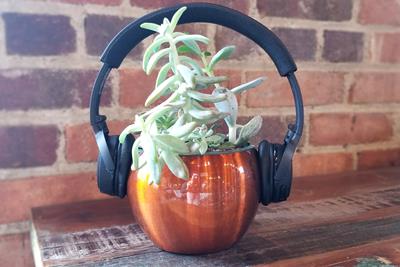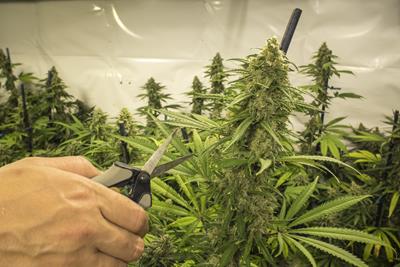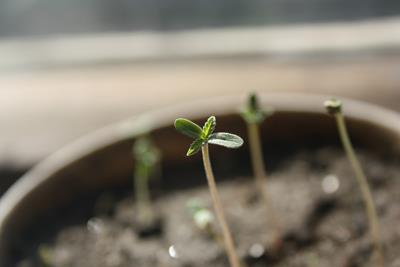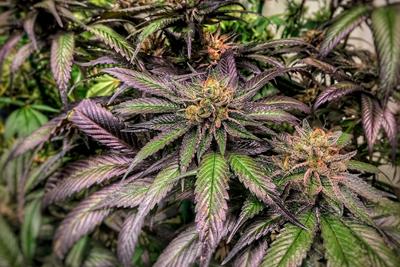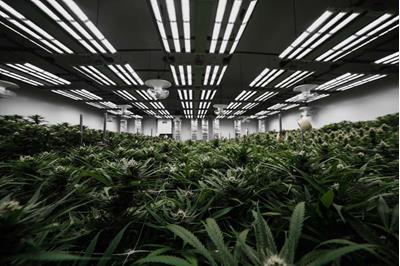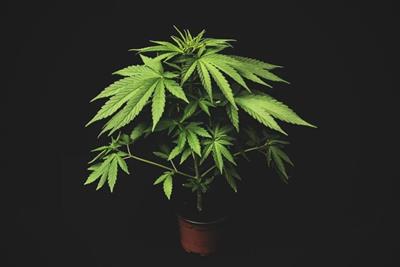
Sunday July 23, 2017
 Growing
Growing
Smoking cannabis may not be dangerous, but smoking pesticides sure is. Unfortunately, a lack of regulatory oversite has many cannabis consumers worried about the chemicals they are ingesting along with their weed. While this is especially concerning for the medical community, all cannabis users should be confident that the products they are consuming are safe, healthy and free of unwanted chemicals and additives.
Hence the growing demand for organic cannabis. Unfortunately, as long as cannabis remains federally illegal, the search for certified organic cannabis will always come up dry.
Why it’s Not “Organic” Cannabis
The USDA regulates the organic certification process. Every fruit, vegetable or other consumable product must meet a specific set of guidelines to be labeled “certified organic.” 95 percent of the product must be completely natural and free of chemicals or additives while the other 5 percent may contain only specific additives as outlined by USDA. Some additives are permissible for some foods while unacceptable for others.
But, because cannabis is federally illegal, the USDA cannot regulate any nutrients or pesticides, and cannot give it the USDA stamp of approval.
As it stands, there are no pesticides that are permissible for both smokable and edible products combined, so cultivation must involve 100 percent organic techniques at all times in order to be of organic quality. This usually takes place through soil supplementation which includes things like worm castings, compost, castings, bat guano, perlite, fish emulsions or peat moss.
Though these products will never officially be “organic” until it becomes federally legal, ancillary companies like the Cannabis Certification Counsel have come along to provide unbiased certification for cannabis products that have been “organically grown and fairly produced”.
How Organic Growing Practices Benefit the Cannabis Industry
Though cannabis products cannot be certified organic, they can absolutely be cultivated organically, thus removing concern regarding contaminants like pesticides or heavy metals. According to a Steep Hill report, 84 percent of California cannabis contains pesticides, the bulk of which being Myclobutanil, a fungicide primarily used on grapes.
Though the product has been deemed safe for use on grapes that can be washed clean, the same cannot be said for cannabis. To make matters worse, smoking pesticides can release dangerous toxins like hydrogen cyanide, carbon monoxide, carbon dioxide, hydrogen chloride and more. If smoking pesticides off of cannabis flower is this bad, imagine how dangerous non-organic cannabis concentrates can be.
Another dangerous consequence of growing cannabis non-organically is the limitations researchers will have when studying it. Unless the cannabis that is studied is guaranteed to be safe for human consumption, we will always have some serious variables to consider and will have a much more difficult time coming to conclusions.
“The Future of “Green” Cannabis
Organically-grown cannabis is better for the plant and for the consumer. Because there is a higher level of support for medical versus recreational cannabis, focus on the health and safety of cannabis products will always be at the forefront of discussions.

If products cannot hold an official “Certified Organic” label, there must be other ways to ensure consumers are receiving the safest products possible. Unfortunately, because the industry is so young, cultivation and production oversight is not standardized and many fertilizers or pesticides slip between the cracks as a result, especially when cultivators stand to earn a sizeable chunk of money based on the amount of product they’re able to churn out.
It is because of this, independent companies like the CCC in California (mentioned above), Organic Cannabis Growers Society in Oregon or OneCert in Nebraska have been born. Using standards outlined by the USDA, these independent companies are offering both training and certification to cannabis cultivation facilities so that their products can feature an official certified stamp instead of simple buzz words like “all-natural,” “organic,” or “100 percent pure” which can be very misleading. Washington state has gone as far as to make a state-wide organic cannabis certification program. Yay, Washington!
What’s Next for Organic Cannabis?
The legal weed industry has developed quite the demand for cannabis products. With the popularity of edibles and concentrates rising, as well, larger amounts of cannabis are needing to be cultivated to keep up with demand (which is why Nevada ran out of weed only two weeks into legal rec sales).
Though some may think this suggests the need for mass cannabis production, the opposite is more likely true. In fact, the cannabis with the most earning – and healing – potential is that that has been organically-grown and processed. But because the federal government cannot oversee a federally-illegal product, the certification process must be performed by third parties.
Looking past old advertising tricks that use buzz words to sell a product, organic cannabis certification lets consumers know that the products they are consuming are safe, healthy, and medically-beneficial.
Do you think it’s important to only consume organically-produced cannabis products? Why or why not?



